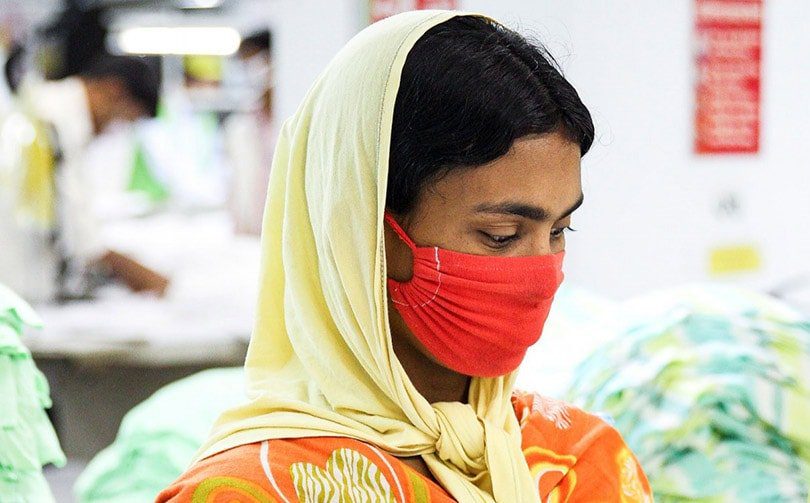Last update on: 11:27 pm July 22, 2022 by fashionabc

The fashion industry has seen enormous upheaval over the last couple of months. As we edge into the post lockdown period, The Seam wanted to pause and take some time to reflect on how people’s personal relationships with their wardrobes have changed during COVID-19.
The Seam is an online marketplace that matches people who can sew with local demand, allowing consumers to find immediate help with clothes repairs and customisations. In April 2020, we launched an online survey* and discovered that people are now gravitating towards more mindful relationships both with their clothes and the communities around them.
Make do and mend culture
64% of the people we surveyed now prefer to repair damaged clothes rather than throw them out. Whilst 6 out of 10 of us are actively trying to improve the way we care for our clothes and accessories. Both of these changes are down to the fact that many of us suddenly had a chance to stop and think about our behaviours as lockdown set in. With no one to see and nowhere to go, and the possibility of reduced income, suddenly our piles of unworn clothing took on new significance.
People have been using this time to think more broadly about their impact on the world. Google trends found in April that over the previous 90 days, search interest in “How to live a sustainable lifestyle” increased by more than 4,550%. And almost half (45%) of the people we surveyed said they had learned they need less stuff in order to be happy.
Love Thy Neighbour
In tune with what we’ve been reading in the news about increased community spirit, we also found that 42% of people would like to increase their purchases of locally bought clothes. However, when we asked the same people to name fashion businesses local to them, the average number of brands they could come up with was between 0-1, signalling a significant need for increased awareness and support in promoting small businesses.
Since The Seam launched in London in 2019, an active and growing community of makers are now sharing their skill of sewing and using it as a way to connect with people in their local community. Greater connection with people in our local area seems to be something that, collectively, we have been craving in the UK. The many, many examples of communities coming together (at a safe distance) to sew scrubs, to deliver food and medicine, to hang out of our windows and clap for workers with our neighbours, is testament to this. This is backed up by research commissioned by the RSA which found that compared to pre COVID-19 lockdown, social bonds are now stronger and 40% of us feel a stronger sense of local community. This is having a great impact on us wanting to support local suppliers, including fashion brands.
The last days of Rome?
Another potential reason for this desire to invest locally and directly with the makers of our clothes is that Covid-19 has again laid bare the brutal logic of the global fashion industry. Many brands, in the face of plummeting sales, shifted the burden onto garment workers in Asia by cancelling clothing contracts worth billions of dollars, resulting in the furloughing or firing and financial ruin of millions of people, mainly women. Along with the fact that fashion’s environmental excesses can no longer be hidden, mindless consumption of cheap clothing leaves ever more of us feeling uneasy at best.
The question is, will we revert back to old habits – those online clothing hauls purged by drop offs at our nearest charity shop – once there are places to go and people to see again? Perhaps not. 85% of British people want to see at least some of the personal or social changes they have experienced continue afterwards, while just 9% want a complete return to normal.
At The Seam we can feel change in the air. Today, buying an item of clothing from a large fashion brand requires such little transactional input from us that we often create little to no emotional attachment to our purchase. The process of choosing to repair or customise our clothes creates a major shift in the relationship we have with them. A more emotional connection encourages us to take better care of the things we buy and keep them for longer.
We certainly haven’t seen the end of the chaos facing the fashion industry which has revealed itself to be highly fragile to sudden disruptions. A global recession will further dampen demand for new clothes. And many people point out darkly that COVID-19 is a mere taster of the chaos to come as a result of climate change.
Big business has not shown itself to be nimble to respond to crisis, as the farce around ventilator manufacturing demonstrated. As production and transaction can now be organised easily between the customer and the maker directly, this might just be the beginning of a movement that sees ‘big fashion’ becoming somewhat of a redundant third party.
People are beginning to experience and engage with their clothes differently, not simply as passive consumers, but as textile custodians with the ability to reimagine, repair and rework items. Long may it continue!









